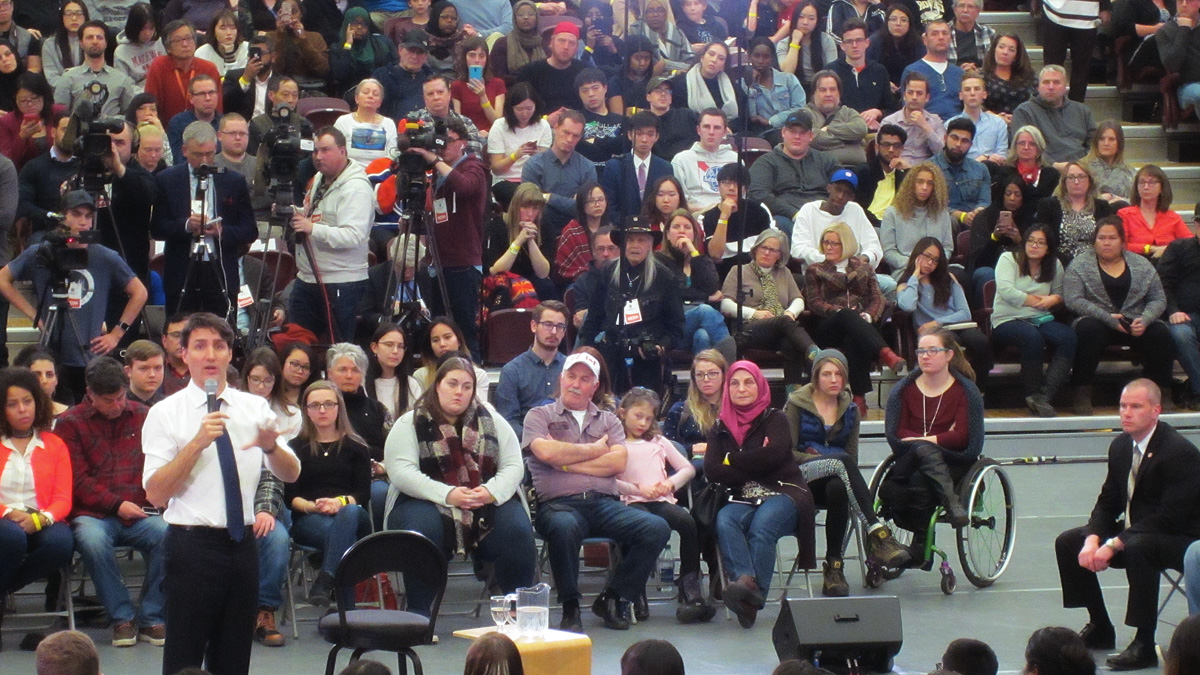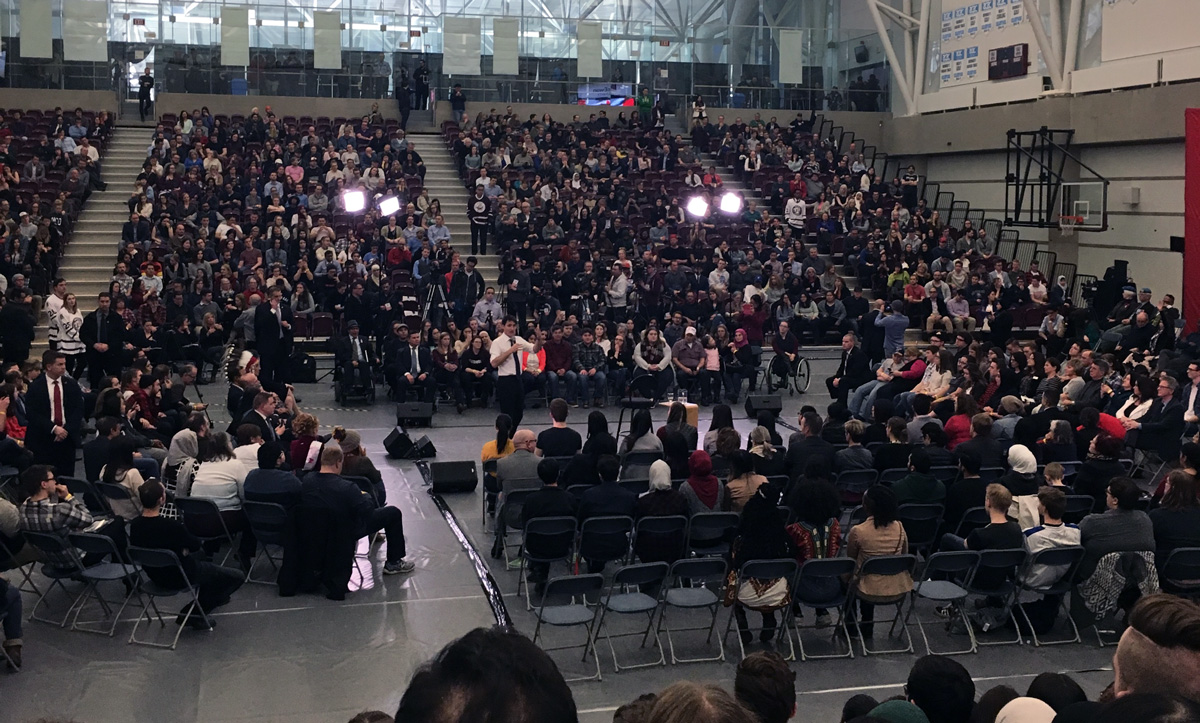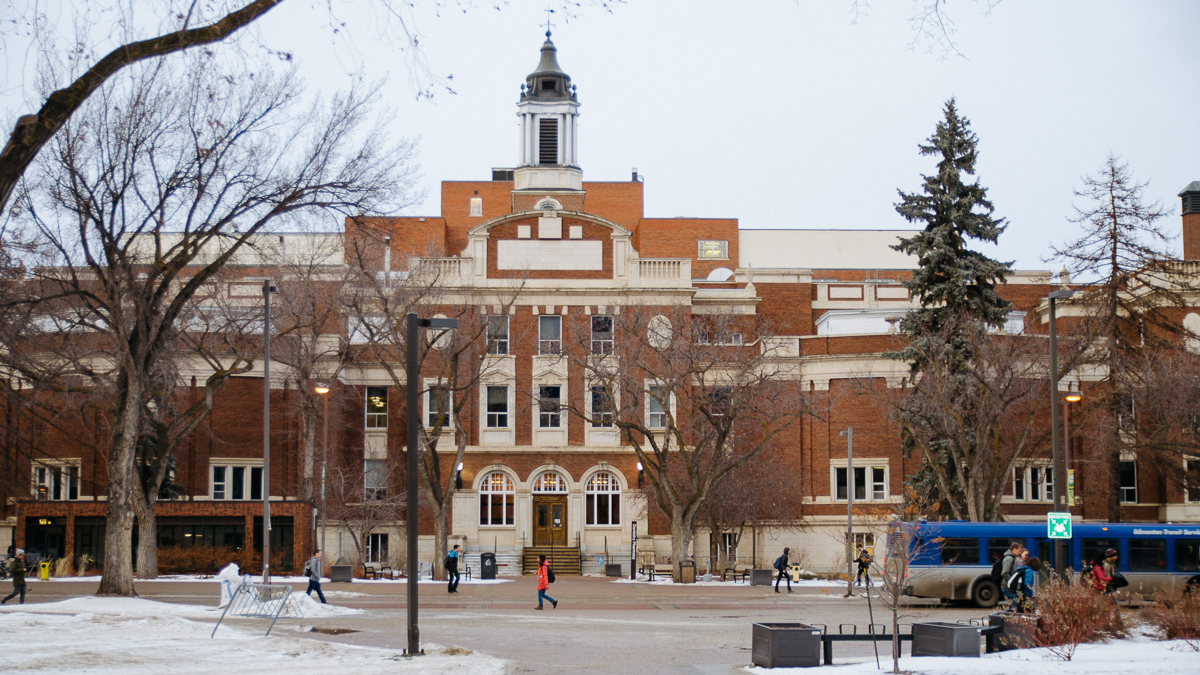Justin Trudeau talks post secondary at Edmonton town hall
 Adam Lachacz
Adam Lachacz On Thursday night, hundreds of Edmontonians gathered at MacEwan University to ask Justin Trudeau their most pressing questions.
The evening was structured Q&A style, with Trudeau selecting members of the audience to speak. Throughout the night, the Prime Minister discussed post-secondary tuition, veteran services, and the opioid crisis.
Post Secondary Problems
One audience member vented her frustrations with post-secondary education and said she’s concerned with how students are graduating from university with debt and limited career options.
“Post-secondary isn’t a luxury anymore,” she said. “It’s something that you need to have a successful career.”
In response, Trudeau noted the number of granting programs introduced by the government that he said have allowed students to enter into a post-secondary education with more financial stability. This included an amendment made to student loans so students don’t have to start repaying their debts until they are making at least $25,000 a year, as well as a 50 per cent increase in upfront grants for middle and low-income students.
The question prompted a discussion about universal free tuition. According to Trudeau, however, universal free tuition isn’t the right answer. Not yet, at least.
“Anytime we look at government expenditures, we’re making choices,” he said. “We just don’t have the economy that will allow for that at this point.”
For now, the Trudeau administration plans on providing funding according to need. This would mean prioritizing those who face the greatest barriers to accessing an education.
Trudeau also addressed the concern that post-secondary students aren’t graduating with the tools to build a successful career. He said his solution is to establish more opportunities for integrated learning, like co-op programs.
– Regan Brodziak

The Opioid Crisis
One woman discussed her son’s overdose on opioids and asked the Prime Minister if his government would commit to a national strategy to tackle the opioid epidemic, and whether the government would consider decriminalizing the possession of harder drugs as a part of that strategy.
Thanking the woman for sharing her story, Trudeau acknowledged that the epidemic was an issue of extreme concern for the federal government. He said that while he has heard many calls for a national emergency plan while visiting with frontline workers at treatment centres, most of the important work has to be done at the community level where the federal government has little jurisdiction.
Despite this limitation, Trudeau said that the federal government has been working with provinces and municipalities to speed up the approval of safe consumption sites. He also said the government has been working to controlling and limiting imports of fentanyl and carfentanil into Canada, as well as the importing of pill presses.
On the medical side, Trudeau said that the federal government is focusing on changing prescription guidelines for doctors, as well as making synthetic opioid addiction treatments such as methadone more accessible. Alongside these, he said work is being done to increase investment in treatment and harm reduction programs.
“We’re working with the provinces to make sure that there’s money invested in the kinds of treatments we have,” said Trudeau. “We are very much aware of and engaged in the problem in almost any way we can.”
On decriminalizing harder drugs, Trudeau said that the federal government would not be considering it as an option to tackle the issue.
“We are not moving forward on decriminalizing anything other than marijuana at this point,” Trudeau said. “It’s not part of the plan.”
— Andrew McWhinney
Canadian Veterans
Trudeau also faced two critical questions regarding the treatment of Canadian veterans from veterans who wore their numerous medals.
An election promise of the Liberal Party was to end the previous government’s lump-sum veteran payment. Under the previous government, veterans would receive one cheque payment after their service. Trudeau’s newly proposed pension for life will see applicants choosing either the existing lump sum agreement or a new lifelong pension. However, the lifelong pension will pay less than half of the previous pre-2006 pension.
One veteran asked why the federal government is fighting its own veterans in court proceedings over the new pension agreements.
“Why are we fighting against certain veteran groups in court? Because they are asking for more than we are able to give right now,” Trudeau said.
The answer was met with immediate disapproval from the crowd. The Prime Minister said the new pension continues to honour the sacrifices of veterans. He urged them to also take note of the significant investments that the Liberal government has made in veterans supports, rehabilitation, training, and services.
“There are different paths and support options available on an ongoing basis instead of (our government) just washing our hands and walking away,” Trudeau said.
— Adam Lachacz




